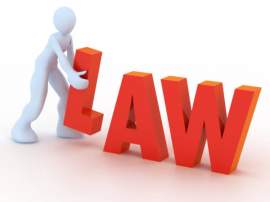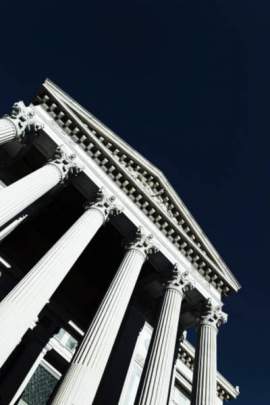
National Federation of Paralegals Associations

Popular In Paralegal
Defendants Right To Appeal Common Law Heritage Functions Of Law Infancy Insanity Intoxication Judicial Interpretation Common Law Legal Analysis Litigation Pretrial Motions Third Party Rights Roles Of Paralegals In Adr Legal Research Validation Paralegal Classification Of The Law
The paralegal profession has been growing in size and recognition in recent years which can be seen by the establishment of national associations dedicated to the profession, such as The National Federation of Paralegal Associations (NFPA) and The National Association of Legal Assistants (NALA). Both of these organizations were developed to promote the paralegal profession and examine all areas of the legal system that affect paralegals.
The NFPA sets forth certain guidelines for which all its members are required to follow and details specific procedures and license requirements for paralegals; some of its policies differ from those of the NALA. The NFPA is responsive to its members, answering questions posed by its members and considering input about areas that may need improvement. By establishing a code of ethics, the NFPA promotes unity within the profession.
Established in 1974, the NFPA was the first organization of its kind dedicated to paralegals. Its membership now consists of 50 professional organizations and represents the interests of about 11,000 members. The NFPA keeps up to date on policy changes and legislature relevant to the paralegal career. This organization has spoken on behalf of all paralegals in situations involving the bar association and the Department of Labor standards.
In order to keep the paralegal profession running efficiently and providing the highest quality of service to the general public, the NFPA has developed the Model Code of Ethics and Professional Responsibility and Guidelines for Enforcement. This document holds paralegals to the highest standards of ethics and service. This Code of Ethics endorses the administration of the Paralegal Advanced Competency Exam (PACE) which functions to measure the competency of a paralegal and gives guidelines to improve the knowledge and responsibility of paralegals. The NFPA works with the American Bar Association to ensure that all practicing paralegals have an appropriate four year degree and are properly licensed.
The NFPA adopted the Model Disciplinary Rules to which all paralegals are obligated to abide by. The Rules demand that a paralegal maintain a high level of competence. Through education, license, and work experience paralegals must perform their duties with the utmost competency. Because the law is an ever changing system, it is necessary that paralegals continue to learn and evolve.
The Rules also lay out a strict set of ethical codes to ensure that paralegals maintain a high level of personal and professional integrity. Paralegals must deliver quality legal services to clients, including pro bono work. These guidelines insist that a paralegal dedicate a certain amount of hours per year to providing free legal services to those in need. Paralegals shall keep all client information confidential, even after the paralegal-client relationship ends. All of these rules and ethics are to ensure that paralegals perform services at the highest level and continue to promote the advancement of the profession.
NEXT: Standing Committee on Legal Assistants




















